News & Highlights
Extractivism, Contested Infrastructures, and Farewell (2025)
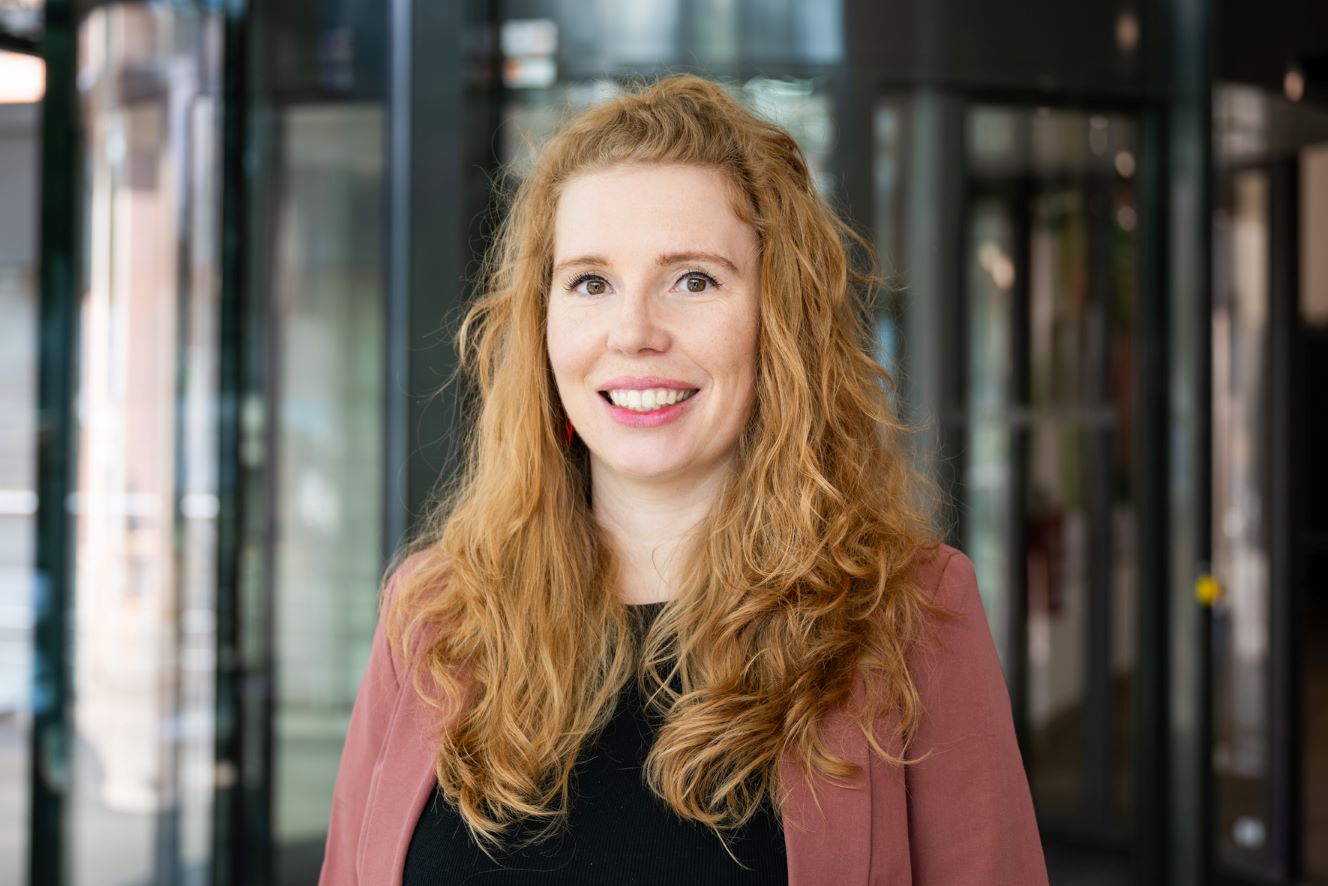
In the last years, Henriette Rutjes contributed to the department’s work on extractivism, public engagement and just transitions through a series of workshops, conferences, and publications that examined how old and new regimes of extraction are reconfigured under the banner of sustainability. Across these engagements, her research foregrounded extractivism not as a resolved past, but as a persistent and adaptive logic shaping contemporary mineral futures.
A central moment of this work was the concluding results workshop of the research project GeRohTrans, held at Schloss Lauenstein in November 2025. Focusing on (re-)mining in the German Ore Mountains, the workshop “Erzgebirge im Wandel: Lokale Perspektiven auf globale Lithium-Zukünfte [The Ore Mountains in transition: Local perspectives on global lithium futures]” brought together local, regional, and international actors to discuss if and how raw material projects can contribute to futures that reflect local visions and needs. Social science findings on public engagement in (re-)mining projects served as a basis for critically examining extractivism’s afterlives and new (re-)mining endavours: its infrastructures, promises of remediation and regional development, as well as questions of risks, responsibilities, and benefits. The workshop was organized in close collaboration with Diana Ayeh, Theresa Herdlitschka (both Department of Environmental Politics at UFZ), and Oscar Choque (Ayni e.V.), with support from the recomine network (Helmholtz Institute Freiberg for Resource Technology).
These empirical and conceptual engagements were further consolidated in the article “Europe as a reemerging mining frontier? Contested lithium futures in the German Ore Mountains”, co-authored with Diana Ayeh and published in Globalizations (2025), see: https://doi.org/10.1080/14747731.2025.2516984. The paper explores how global supply pressures and geopolitical demands for ‘critical minerals’ such as lithium intersect with local extractive infrastructures and historical residues in the German Ore Mountains. Based on ethnographic research within a transdisciplinary re-mining project, it shows how conventional and ‘green’ forms of extractivism are entangled in material and discursive practices. The study highlights how temporal pressures, new EU mining legislations like the Critical Raw Materials Act, and corporate and state-led attempts to accelerate permitting procedures shape local struggles and create specific crystallizations of lithium extraction—spaces where alternative visions of future-making emerge.
Henriette Rutjes now moves on to continue her research at Hochschule Harz, where she will be working with former SUSOZ colleague Prof. Dr. Alena Bleicher.
Personal exposure to environmental pollution in cities
The UFZ and the Indian Institute of Technology Madras (IITM) held a workshop in Chennai from 27 to 29 October on transdisciplinary receptor approaches to reducing exposure. These models consider environmental pollution from the perspective of the individual and still constitute a loose bundle of methods – a systematic concept is lacking. This contrasts with the rapid development of wearable sensors (trackers) that measure and georeference exposure, as well as novel and highly advanced methods of data analysis. The combination of such techniques is very promising. This is where the workshop came in. Thirteen experts from academia, industry and NGOs travelled from Germany to exchange ideas with participants from India and discuss new research questions and solutions. The bilateral workshop was actively supported by the Indo-German Science and Technology Centre (IGSTC).

Workshop „Exploring Possibilities in Digital Laboratories“
From October 8–9, the UFZ hosted the international workshop “Real World Labs versus Solutions – Exploring Possibilities in Digital Laboratories.” Danny Otto and Matthias Groß welcomed researchers from six countries to exchange ideas on real-world labs, digital and game-based experimentation, and new approaches to finding solutions. The workshop was accompanied by the UFZ Serious Games Fair – a showcase for “serious” games designed to convey complex knowledge in engaging, interactive ways. A detailed summary of the most important discussions and insights is now available:
On the path to the resilient city: Concept phase launched
Scientific exchange
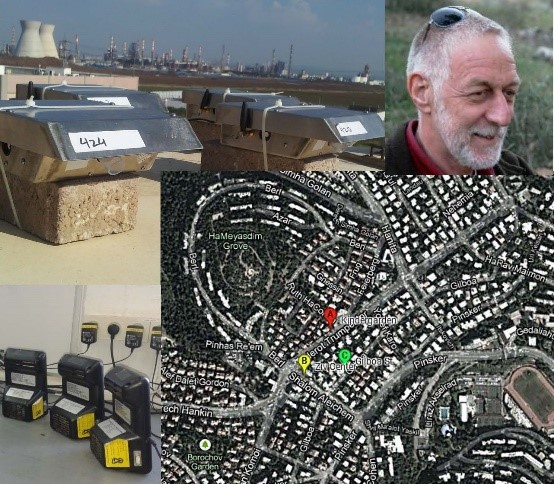
Prof David Broday from the Technion – Israel Institute of Technology, Haifa, visited UFZ and HZDR/CASUS from 5 to 12 March 2025. Exchanging experiences on exposure to air pollutants and heat, the partners discussed the merging of data from stationary monitoring stations with data from wearable sensors. Development of wireless distributed sensor networks for the assessment of urban adaptation scenarios under climate change has been explored, and links to walkability were considered. New AI approaches open up interesting and promising methods for data assimilation that can improve the spatial and temporal interpolation of measurements and contribute to advance warning systems for different vulnerable population groups.
New project on urban transformations
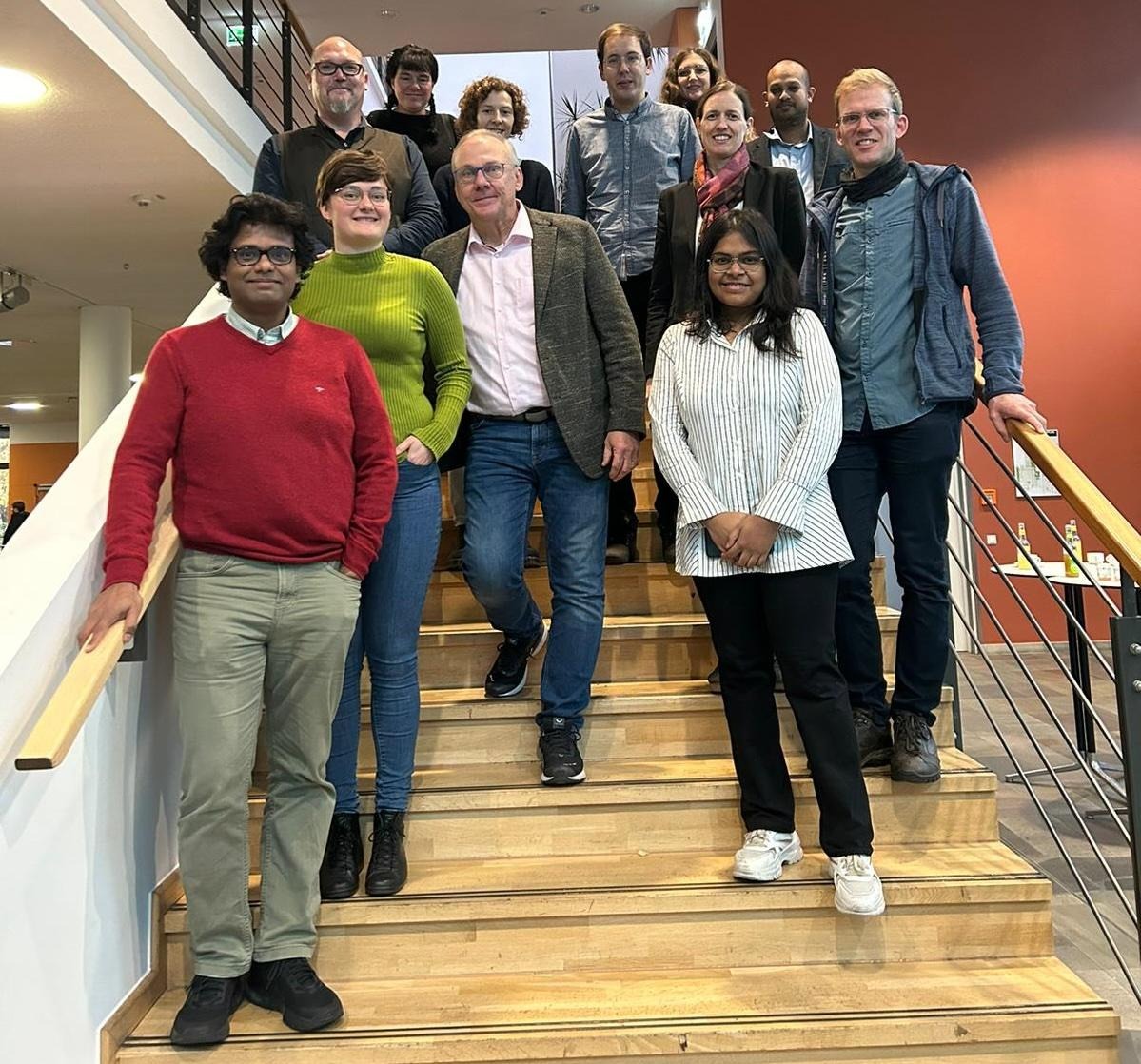
Launch of a new Helmholtz project to study urban transformations towards blue-green infrastructures
The wider implementation of blue-green infrastructures can make an important contribution to making cities more liveable, increasing urban biodiversity and improving resilience to extreme weather events such as heatwaves and heavy rainfall. The new Helmholtz project "Urban transformations towards blue-green infrastructures", which started in October 2024, aims to drive tangible urban transformations through the development, planning and assessment of blue-green infrastructures, using an inter- and transdisciplinary approach involving both academics and practitioners. Three Helmholtz institutes - the Helmholtz Centre Hereon, the Karlsruhe Institute of Technology and the Helmholtz Centre for Environmental Research - are participating in the three-year project. Dr. Annegret Haase and Dr. Josef Kaiser from the Department of Urban and Environmental Sociology and Prof. Dr. Sina Leipold from the Department of Environmental Politics are involved in a work package that aims to investigate the narratives, conflicts and potential solutions related to the implementation and effectiveness of blue-green infrastructure projects in urban environments. The official kick-off meeting took place at the UFZ in Leipzig on 11 and 12 November 2024 and allowed all project partners to get to know each other and to have fruitful discussions about the project implementation and the selection of suitable case studies.
Kick-off project "Carbon Cascadia"
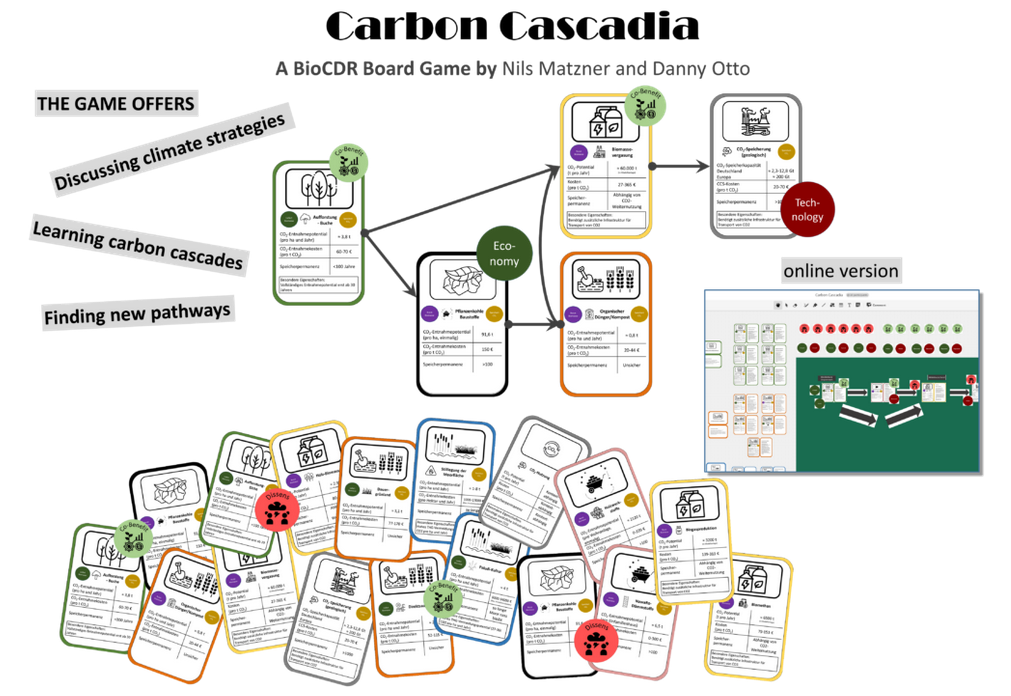
Inauguration of the green façades in the "Living Walls" project
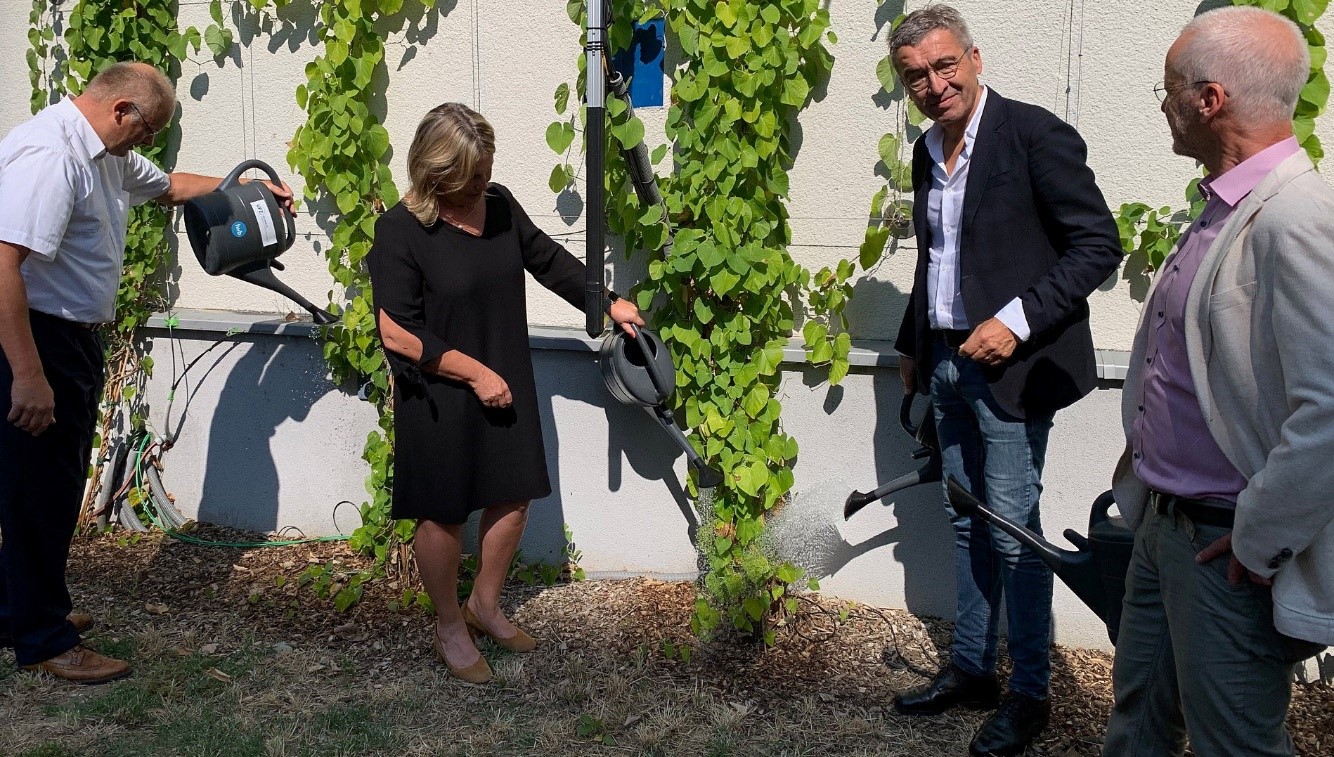
Text-as-data in Hydrology, Natural Hazards, and Climate Change Research
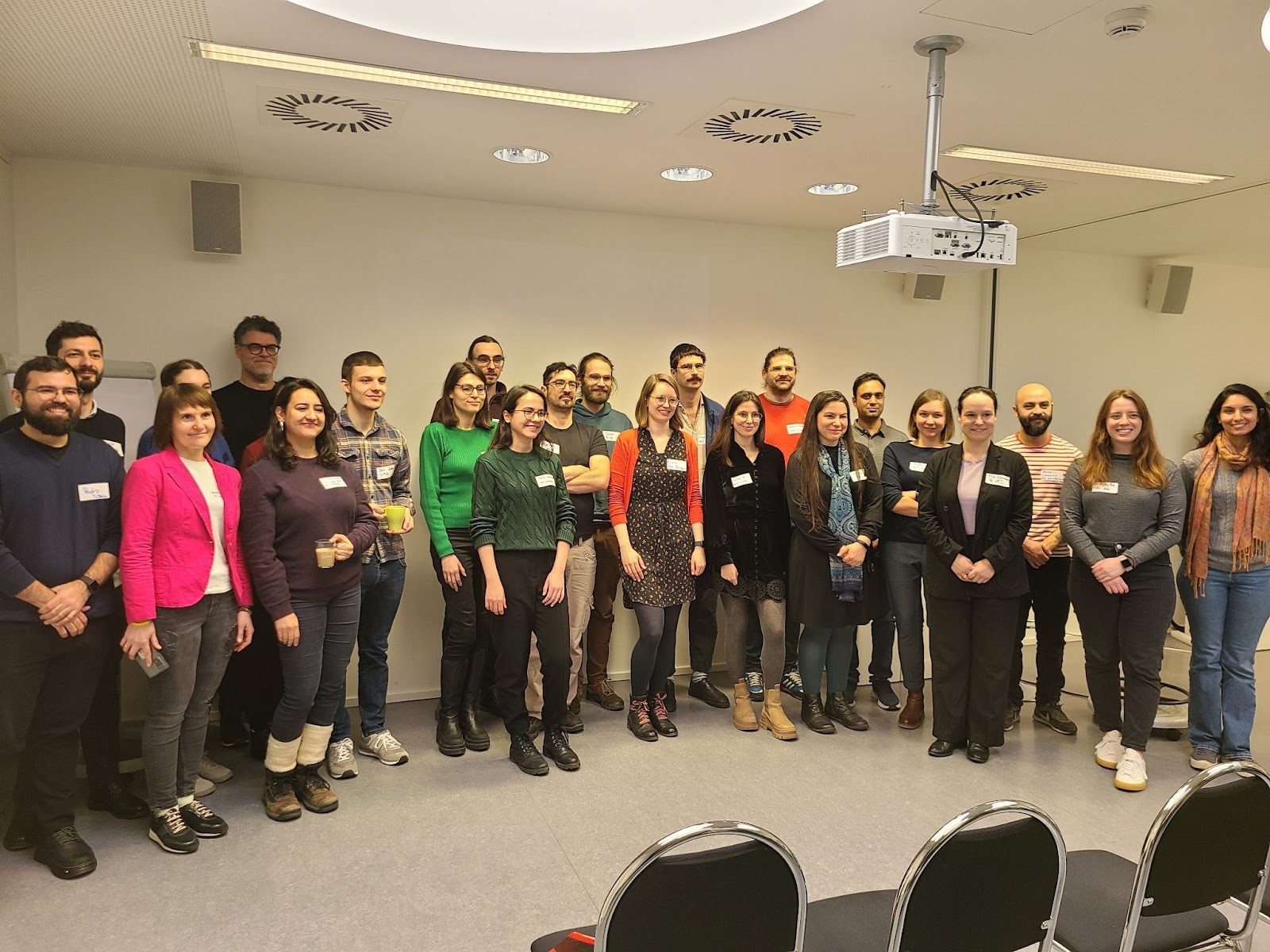
Exploring challenges and opportunities
Workshop Summary:
Understanding public opinion on climate change, how people deal with a heatwave, or what impact droughts have on agriculture, forestry, tourism, or energy systems is a daunting task. Surveys offer one avenue to address this challenge, but the wealth of existing information in newspapers, social media, government reports, and scientific literature present an invaluable resource waiting to be tapped. As climate change intensifies natural hazards, leveraging the extensive volume of text data becomes increasingly urgent.
Enter text-as-data – a suite of methods, including cutting-edge language models like ChatGPT, designed to sift through unstructured text data, extracting insights and patterns. While the community of experts applying these methods in hydrology, climate change, and natural hazards research is small, it's steadily expanding.
The inaugural workshop on "Text-as-data in Hydrology, Natural Hazards, and Climate Change Research," hosted by the University of Potsdam's Analysis of Hydrologic Systems Group, in collaboration with the Helmholtz Centre for Environmental Research and the Potsdam Institute for Climate Change, marked a milestone in this upcoming field. Gathering researchers from diverse backgrounds, the event fostered networking and interdisciplinary dialogue.
Following keynote presentations spotlighting recent technical advancements, participants delved into in-depth discussions. They explored the myriad opportunities text-as-data presents in environmental sciences while delineating barriers and biases that must be overcome to realize its full potential. Real-world strategies for advancing the field were also hot topics.
Overall, the workshop proved to be a fruitful platform for scientists to collaborate and explore the potential of text data analysis in tackling critical societal challenges related to water resources, climate variability, and disaster risk management. Looking ahead, future meetups are already being planned, including the next workshop for spring 2025, which will take place at the Helmholtz Centre for Environmental Research, Leipzig.
New project on transdisciplinary raw materials research
Workshop in the mFUND Project RadFuß+
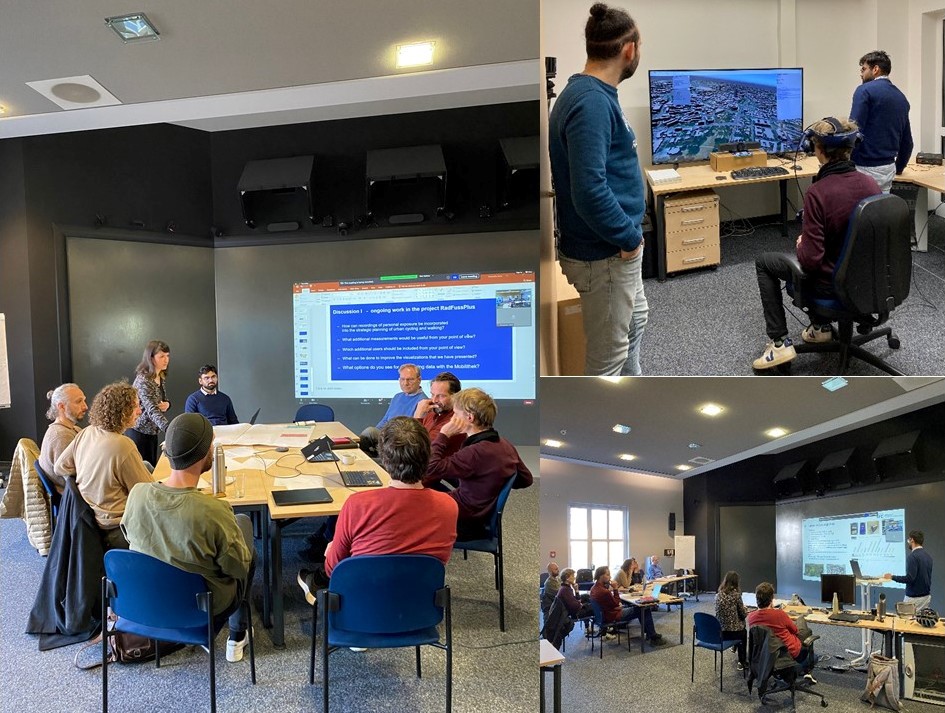
The mFUND project "Identification of environmental stressor hot/cold spots in pedestrian and bicycle traffic with the help of mobile measurements - RadFuß+" organised a (hybrid) user workshop at the UFZ VisLab on 12th March. Together with representatives from Leipzig’s city offices, start-up companies, NGOs, the BMDV and the project holder, the project team (Zora Reckhaus, Himanshu Setia, Uwe Schlink) discussed, how environmental trackers can help to raise awareness of personal pollution exposure and promote cycling and walking as a means of transport. For the measurement campaign carried out in cooperation with the project "Neue Nähen – SUPERBLOCKS Leipzig" (district around Eisenbahnstraße in Leipzig’s east) the gathered data were visualised. During the intensive exchange, possibilities were worked out for incorporating data of personal exposure into strategic planning of cycle and pedestrian traffic.
New project on CO2 capture and storage (CCS)
Himanshu Setia in the project RadFuß+
The Resilient City. Concepts Conflicts, Solutions
Our academic book The Resilitent City. Concepts, Conflicts, Solutions is published by Springer Publishing House, edited by Sigrun Kabisch, Dieter Rink and Ellen Banzhaf. It is based on the intensive collaboration of the authors in the platform project Resilient Cities, presents the current state of the discussion and reflects the spectrum of research on this topic at the UFZ. The volume contains conceptual and empirical contributions and also builds bridges to municipal practice. The natural and social science contributions focus on contradictions, trade-offs, conflicts and potential solutions.
The book was funded by the UFZ Library's Open Access Fund.
Guest researcher until September 15th
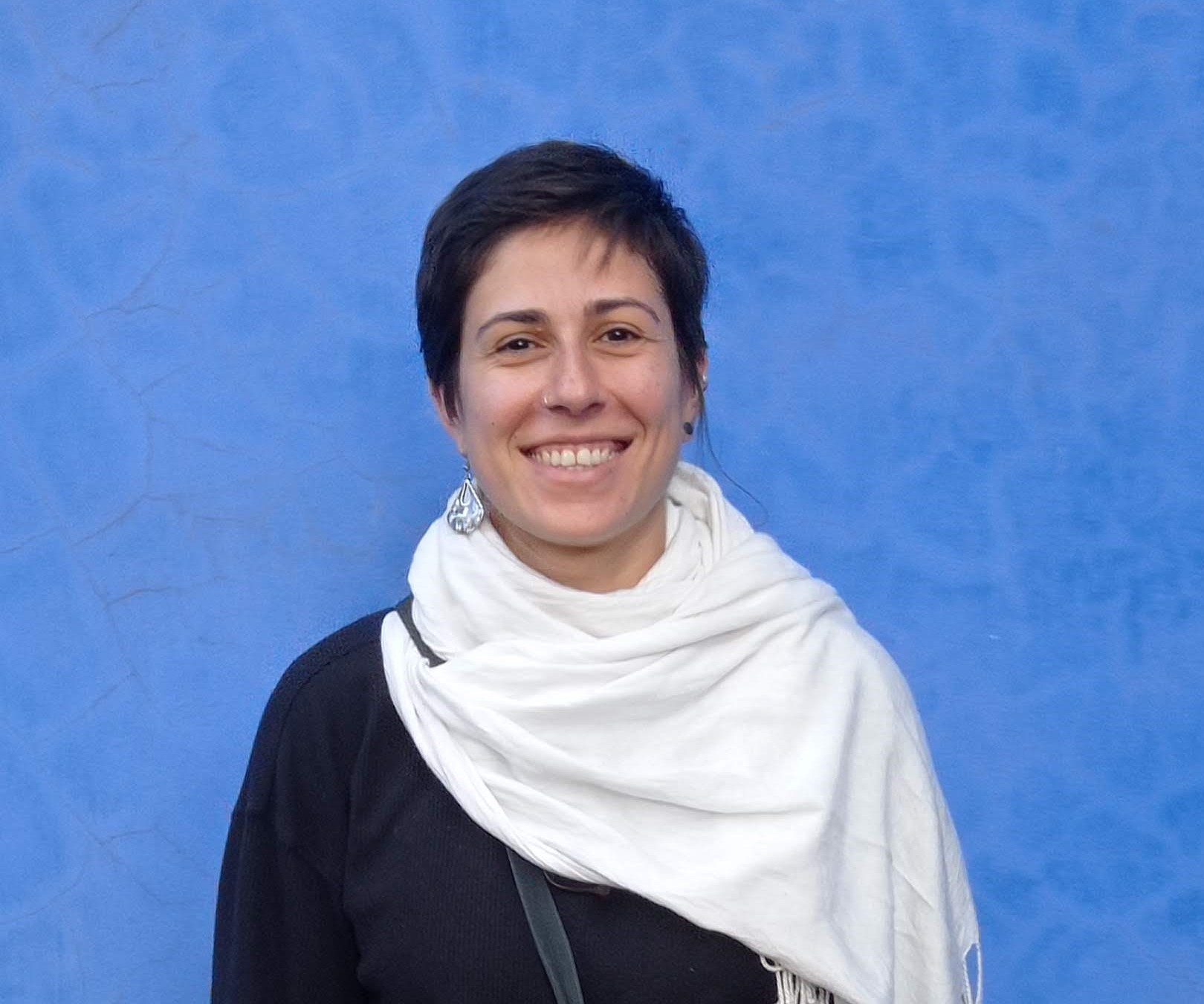
Julianna Colonna joins our department as a guest researcher until September 15th. She is currently a Ph.D. candidate in sociology at the University of Pau, located in the French Southwest. With a background in Environmental Science and Management from the University of Sao Paulo, Brazil, her journey has been characterized by an interdisciplinary approach.
Julianna's doctoral thesis focuses on the exploitation of the underground, particularly the concept of "emptiness", a concept that she is developing in order to understand how the underground comes to be a disposal and what does it mean to be “empty”.
Her case study, C4000, investigates the injection of industrial fluid "things" into the underground. Choosing to refer to “things” is more than a semantic decision; it underscores Julianna's recognition of the significant impact that naming has on the knowledge and ignorance production. During her stay in the department, Julianna will be happy to engage in the exploitation of underground dynamics and the concept of "emptiness."
Additional team player in the EU project REGREEN
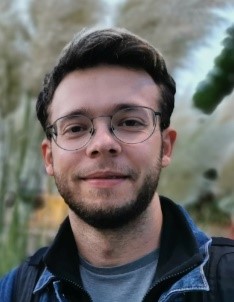
Sebastian Elze
In the REGREEN project, the interactive walkable floor maps have gained high visibility for which reason the UFZ acquired additional funding from the coordinator. This added budget feeds nicely to engage our colleague Sebastian Elze as a scientist in the third-party funded project and as a team player in the department. Sebastian’s expertise is in urban remote sensing and Geoinformatics. He will present the interactive floor maps on an international conference and steer the guidance on how to benefit from walkable floor maps in an interdisciplinary way. The expertise gained so far encompasses researchers from governance and education to apply walkable floor maps in workshops in an interactive way. Sebastian will further elaborate the tools like QR codes, overlay transparencies, photo elicitation, etc. to create the floor maps as dynamic visualisation products for social sciences.
Project heat stress at neighbourhood level
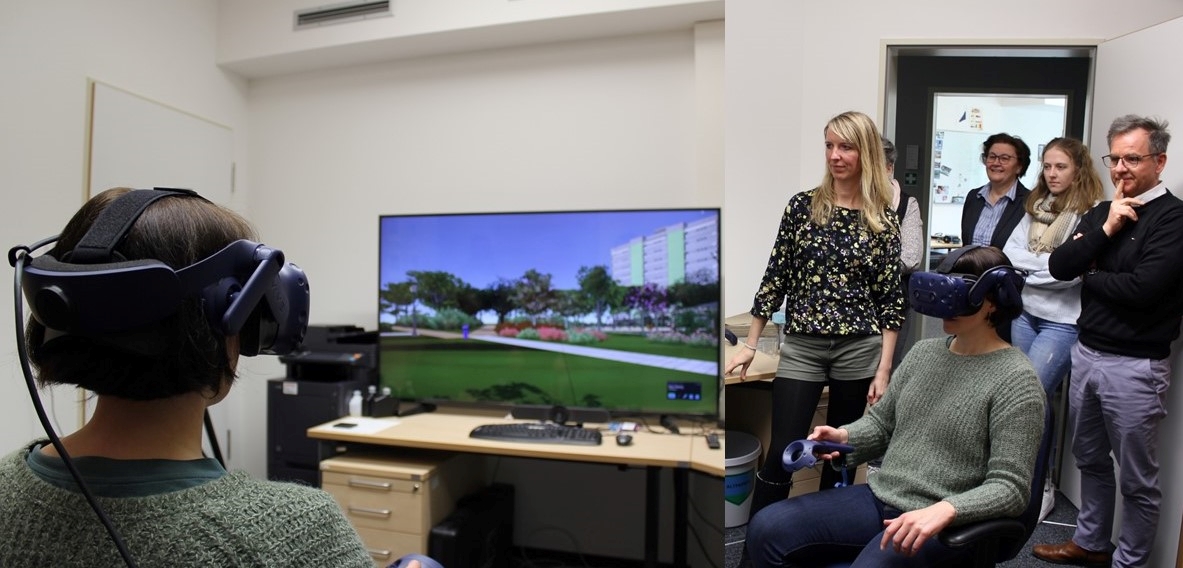
Urban-Rural-Partnerships − Sustainable and Resilient
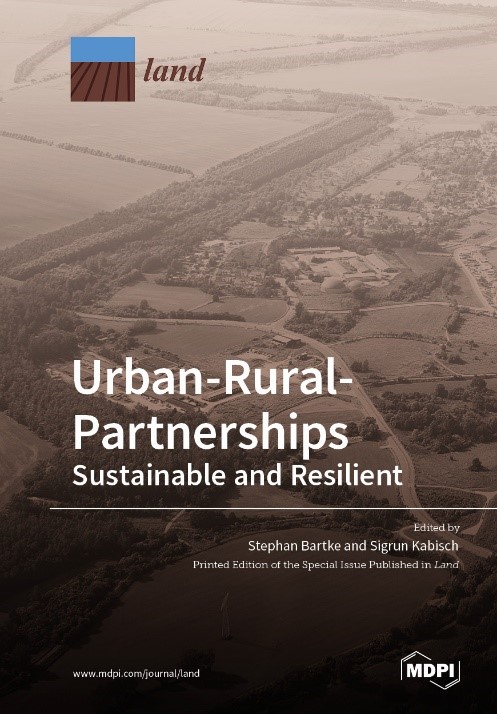
Stephan Bartke and Sigrun Kabisch, Eds., 2023, printed edition of the Special Issue published in Land
The volume consists of 16 papers by speakers attending the international conference „Sustainable & Resilient Urban-Rural Partnerships - URP 2020“. The papers represent novel urban-rural imaginaries, integrated strategies and projects which explore current and future potential in terms of sustainability and resilience. They include conceptual and methodological considerations, as well as case studies dedicated to striking examples and providing transferable knowledge and solutions.
Sungju Han completed her PhD project
Sungju Han achieved a milestone in her academic journey as she successfully completed her doctorate. Her dissertation on "Perceptions of nature-based solutions in the context of floods" was defended in December 2022, and it was subsequently published in the University of Potsdam library. The project was funded primarily by the DAAD (German Academic Exchange Service), which awarded her a doctoral scholarship. She was supervised by Prof. Dr. Annegret Thieken (University of Potsdam, Institute of Environmental Science and Geography) and Prof. Dr. Christian Kuhlicke (UFZ and University of Potsdam, Institute of Environmental Science and Geography).
Sungju's work was particularly focused on understanding the factors that shape perceptions of nature-based solutions in the context of flooding. Her research followed an integrative approach that analyzed attitudinal and contextual factors that are critical in determining people's perceptions of nature-based solutions. She stressed the need for a more comprehensive understanding of the meanings and values attached to a particular place before implementing any flood control project. She also highlighted the importance of how these attributes interact with individual and community risk profiles and other contextual factors.
Sungju keeps her work on perceptions of nature-based solutions in the EU Horizon project RECONECT in the department.
URBIO Book of Abstracts published
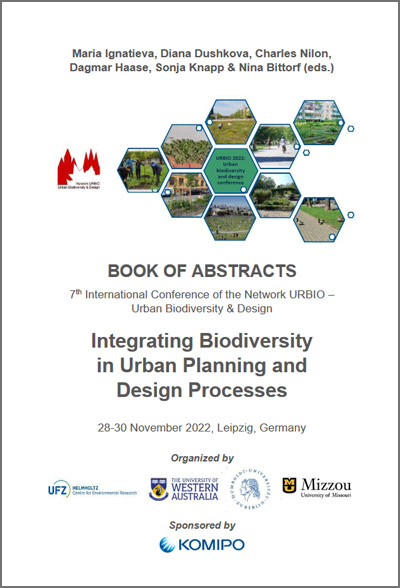
The 7th Conference of the International Network Urban Biodiversity and Design (URBIO) with the theme “Integrating Biodiversity in Urban Planning and Design Processes” took place on 28–30 Nov. 2022 at the Helmholtz Centre for Environmental Research – UFZ, Leipzig, in close cooperation with the Humboldt University of Berlin, the University of Western Australia and the University of Missouri. It was sponsored by KOMIPO (South Korea).
The conference acknowledged the growth in and understanding of the critical role of biodiversity in our cities and the necessity of its integration with practical applications such as planning and design. It highlighted the necessity of inter- and transdisciplinary collaboration and the importance of advanced research on urban biodiversity and its implementation to the planning, design and management of urban landscapes to promote integrated and multifunctional urban blue-green infrastructures for sustainable and resilient cities.
This book of abstracts comprises 62 abstracts of oral presentations and eight posters from the Conference. It is concluded by the Leipzig URBIO 2022 Declaration. The full version can be found here:
DOKORP 2023
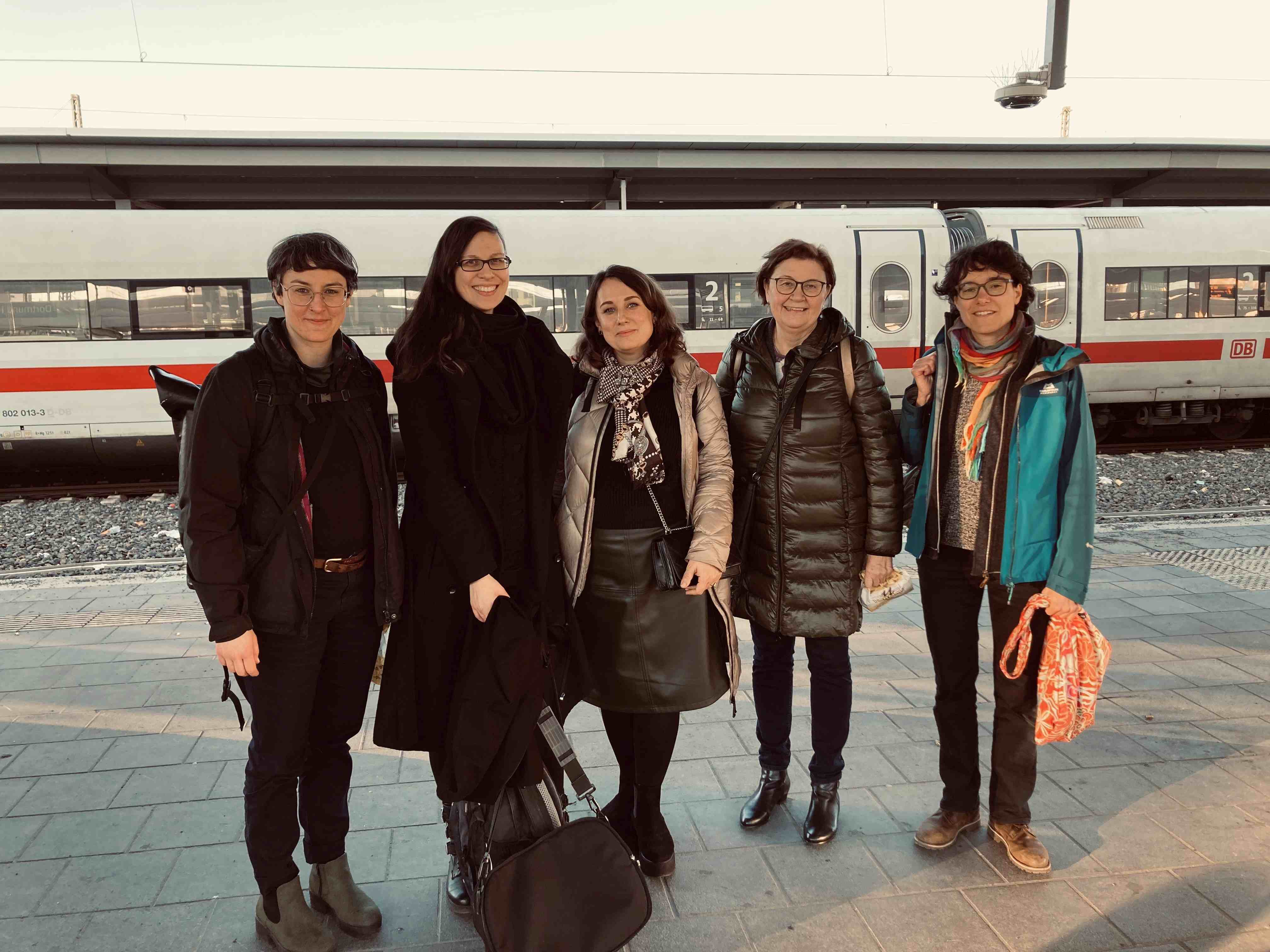
The Department Urban and Environmental Sociology was represented by five colleagues at this year's Dortmund Conference on Spatial and Planning Research under the title "If possible, please turn!" Researching and Planning for the Sustainability Turn (13-14.2.2023). The approximately 400 participants could engage in eight thematic tracks with 41 sessions, two keynotes and four roundtables.
Janine Pößneck, Anika Schmidt, Diana Dushkova, Annegret Haase and Sigrun Kabisch were involved with presentations and as session leaders. Janine gave a presentation on her experiences from the Living Lab approach in the context of the redevelopment of existing neighbourhoods. Diana moderated the session on Nature-Based Solutions and Urban Resilience and presented her own results on participatory approaches. Annegret and Janine led a session on the relevance of the neighbourhood scale for sustainable urban development. Therein, Anika gave an insight into the current status of a pilot project in Leipzig dedicated to the transfer and adaptation of the Superblock approach, and Sigrun pleaded in her contribution for a precise potential analysis on the neighbourhood level. A wide and highly interested audience from practice and science followed the presentations. Overall, the conference offered numerous opportunities for scientific exchange, critical questioning, stimulating contacts and networking.
Daniel Hertel completed his PhD project
With the defence of his dissertation in September 2022 on the topic of "Optimisation of urban heat adaptation measures" and its publication in the Leipzig University Library in November 2022, Daniel Hertel has successfully completed his PhD project. This research work was largely supported by the Deutsche Bundesstiftung Umwelt (DBU) as part of a doctoral scholarship. In addition to Prof. Dr Johannes Quaas (University of Leipzig, Institute of Meteorology), Prof. Dr Uwe Schlink (UFZ, Leipzig) was the main supervisor.
Daniel Hertel's work focused on assigning causes to urban overheating. Based on micrometeorological simulations, the developed algorithm generates maps to identify the biophysical factors responsible for local overheating. As a result of the new attribution algorithm, recommendations for more effective and targeted adaptation measures could be developed.
Risk Communication to support property level adaptation
New project on resilience planning in German municipalities
New edition: International Handbook of Ignorance Studies
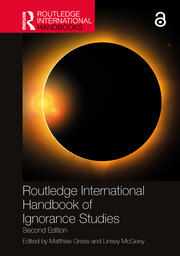
The new edition of the Routledge International Handbook of Ignorance Studies, edited by Matthias Gross and Linsey McGoey, is a seminal text in the field of studies in ignorance, secrecies, and nonknowledge. It is now fully revised and includes new and expanded chapters on religion, domestic law and jurisprudence, gender studies, memory studies, and colonial history, among many others.
